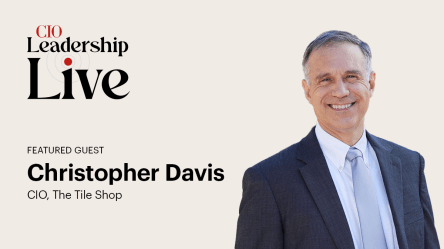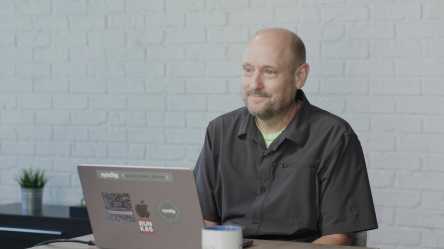AI isn’t killing the career ladder — it’s speeding it up, turning junior hires into strategic thinkers from day one.

Is your talent pipeline ready for the Agentic Era, or is it stuck in the past? According to a 2023 McKinsey report, activities that account for up to 30% of hours currently worked in the US economy could be automated by 2030, with the greatest impact on job categories such as office support and customer service.
For CHROs, the question of AI’s impact on junior roles is a common one. A prevalent fear is that automating entry-level tasks will disrupt the traditional career ladder and compromise the talent pipeline that fuels senior leadership. This perspective, however, is fundamentally flawed. In the agentic era, we are not losing our pipeline; we are accelerating it. This is a strategic mandate for leaders to stop viewing junior talent as a source of cheap labor for repetitive tasks. Instead, it’s an opportunity to see them as the first generation of AI-native professionals — ready to drive value from day one.
The inefficiency of the status quo
For decades, the standard career path has been a slow climb. It’s a system built for a time before technology could handle the mundane. This traditional model is inefficient, slow and increasingly unsuited for a dynamic, data-driven world.
- The ‘rote” phase. Years spent on manual data entry, compiling reports, basic code testing or routine customer inquiries.
- The ‘learning’ phase. Gradually gaining experience by watching senior colleagues and moving up to more complex tasks.
- The ‘strategic’ phase. Finally, after years of this process, the professional is entrusted with high-level strategic work.
With semi-autonomous AI agents now capable of executing many of these tasks with near-perfect accuracy and speed, we have a choice: cling to an outdated model, or seize the opportunity to build a more agile and innovative workforce.
Accelerating the path to leadership: The new model
The Agentic Economy allows us to bypass the “rote” phase entirely, transforming the junior employee’s experience into one of immediate and continuous strategic contribution. This is the new talent pipeline your organization must build.
- From execution to oversight. The new entry-level job is about oversight and optimization. Instead of a junior financial analyst manually entering data, they will manage an AI agent that pulls, cleans and analyzes the data. Their core competency is not data entry but in validating the agent’s work, identifying discrepancies and asking the right questions to get to a deeper insight. This immediately develops critical thinking and analytical skills that used to take years to acquire.
- From ‘learning by doing’ to ‘learning by directing’: The junior professional will no longer learn by performing a task repeatedly. They will learn by designing and directing AI-driven workflows. A junior developer, for example, won’t spend months on boilerplate code. Instead, they will learn systems architecture by tasking an agent to write the code, then gain experience by reviewing the output, identifying flaws in the logic and architecting the next iteration.
- From ‘contributor’ to ‘innovator’: By offloading the operational “how,” junior employees are free to focus on the strategic “why”. This creates a culture of innovation where a new hire isn’t a passive recipient of tasks, but an active participant in problem-solving and ideation. They can use their newfound time to experiment with new agentic tools, prototype new business solutions or find efficiencies that senior leadership might overlook.
A strategic mandate for HR, IT and AI leaders
For CHROs and CIOs, this is a shared talent mandate, not just a technology one. HR is on the frontlines of this transformation and must partner closely with IT to make it a reality. As Gartner research notes, the shift to an AI-enabled workforce requires HR to evolve its service delivery and prepare the workforce for change.
- Rethink your job descriptions. Update your entry-level job descriptions. Stop asking for skills in data entry or manual reconciliation. Start looking for curiosity, critical thinking, problem-solving abilities and an eagerness to experiment with new technologies. This aligns with a skills-based approach, which is crucial for modern talent management.
- Invest in training for oversight. Your training budget should pivot from teaching employees how to perform manual tasks to teaching them how to manage and direct AI agents. This includes training in prompt engineering, AI literacy and ethical oversight. As a Deloitte study highlights, providing real-time coaching through AI tools and redesigning onboarding programs can accelerate talent development.
- Embrace a new HR-IT partnership. The success of this transition depends on deep collaboration between HR and IT. As reported in HR Executive, CHROs and CIOs must co-own the AI adoption strategy, from shaping the business case to implementing upskilling initiatives. This partnership is key to breaking down silos and building a shared vision.
- Leverage AI to reduce bias. HR leaders can use AI to make the hiring process more equitable. By anonymizing candidate information during the screening process, AI tools can help reduce unconscious bias and ensure evaluations focus on skills and qualifications. MokaHR reports that 68% of recruiters believe AI can minimize unintentional bias in recruitment decisions.
Supercharge your junior talent pipeline!
The future of your organization depends on a continuous pipeline of innovative, strategic thinkers. The agentic era isn’t a threat to this pipeline; it’s the greatest opportunity to supercharge it. By reframing our approach to junior talent, we can build a workforce that is more productive, more innovative and more agile than ever before.
The agentic era is here. The question is no longer ‘if’ you should adapt, but how quickly you can seize this opportunity to supercharge your talent pipeline. Start building your future-ready workforce today.
This article is published as part of the Foundry Expert Contributor Network.
Want to join?










